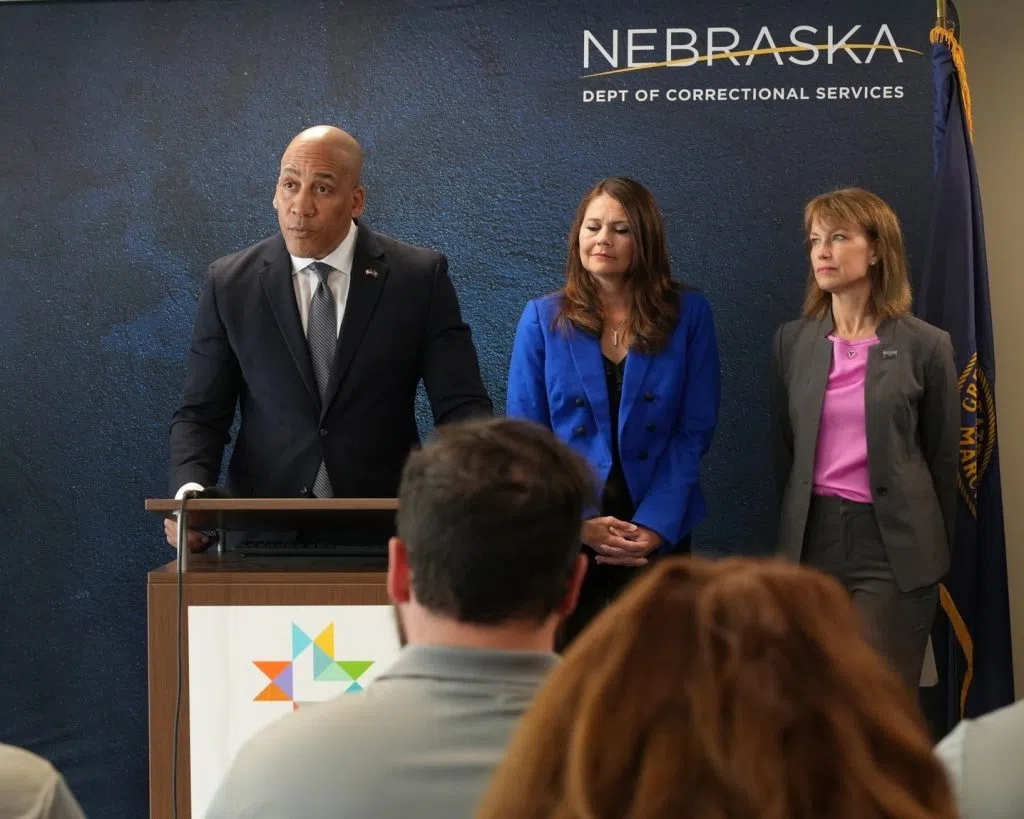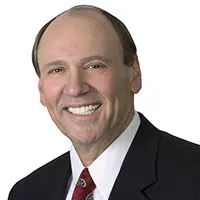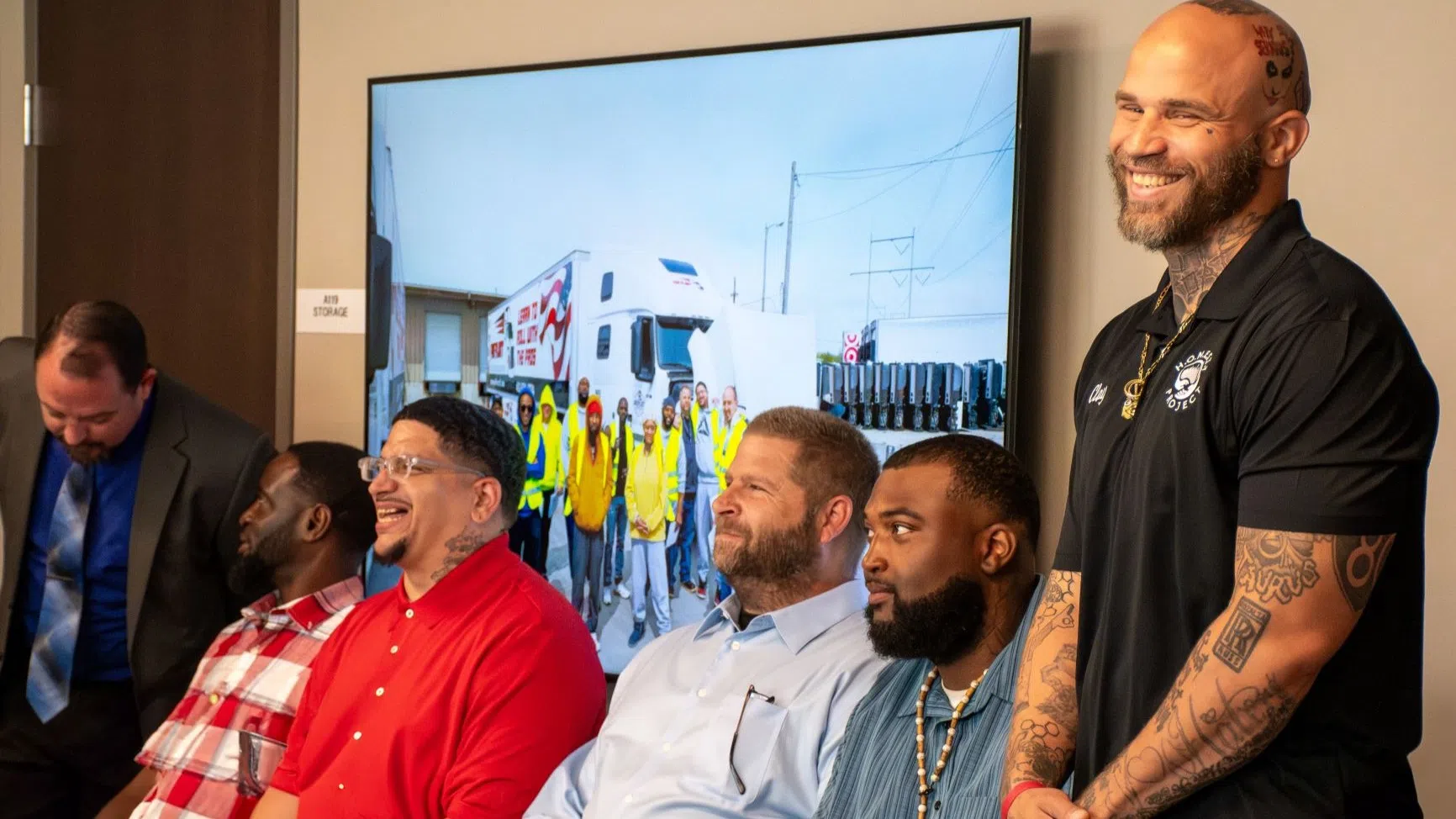Earlier this year, four inmates serving time at the Community Corrections Center – Lincoln (CCC-L) received a commercial driver’s license (CDL) through a state partnership with Hill Bros. Pro-Fleet CDL Driving Academy in Omaha. More than 20 graduates later, Lincoln is feeling the impact.
Since the inaugural class graduated in May, six inmate-graduates of the program have been hired as truck drivers on work-release by Uribe Refuse Services, a local garbage collection company. Uribe’s Director of Recruiting, Tony Dutter, enthusiastically told KLIN News how beneficial the program has been — not just for the company, but for the inmates as well.
“It’s been awesome partnership for us. It’s always been difficult to find good CDL drivers, and now we’ve gotten a direct funnel of CDL holders to come drive our garbage trucks,” he said. “Pro-Fleet is sending us four or five drivers every month saying, ‘Hey, they just passed their CDL license, they’re coming in for an interview!’ Which has been so remarkable, and the inmates love their job here. They get to be outside, driving around town and get a great start to their life outside of prison.”
During the typical 4-day class week, a shuttle van transports students from the CCC-L to the Pro-Fleet Academy in central Omaha where they undergo all-day training until late afternoon.
The Pro-Fleet CDL Academy was created by the Omaha-based Hills Bros. Transportation recognizing the need for streamlined CDL instruction program which offered hands on experience. Finding and hiring qualified CDL drivers is a common staffing struggle for a myriad of businesses which rely on large/heavy vehicles like trucks, buses, and trailers. Hills Bros. facilitates both long distance “over-the-road” hauling, and local hauling — which work-release employees assist with.
Pro-Fleet program manager Roger Murphy, who Dutter likened to the school’s principal, said the idea came about to help incarcerated individuals and reduce the state’s recidivism rate. “And what a better way to help somebody than to give them an opportunity, not only once they get out, but while they’re currently incarcerated?” he said.
Though Murphy’s role is primarily administrative, he draws on his 20 years of professional driving experience and 6.5 years training CDL drivers to put his expertise to good use in the classroom.
“We do logs, maps, hours of service, education on the industry. Then we get out there and it’s all hands on from the pre-trip inspections, to road training out there in city traffic, making right turns, left turns, curves on the interstate, really everything that a truck driver would do on a day to day basis, with the exception of delivering the load,” he described.
While discussing the program’s inception, Murphy joked that his list of thank you’s and honorable mentions might cue played-off music. But Pro-Fleet Program Director Mitch Evans, Nebraska Department of Corrections Director Rob Jeffreys, and State Senator Kathleen Kauth were mentioned to have had a hand in the program’s creation.

Nebraska Department of Corrections Director Rob Jeffreys (left) is joined by State Senator Kathleen Kauth and Lincoln Mayor Leirion Gaylor Baird during the graduation of Pro-Fleet’s first cohort. (Courtesy: NDCS)
Jeffreys, hired as director by Governor Jim Pillen in April of 2023, had previously led transformational criminal justice reform as the director of the Illinois Department of Corrections from 2019-2023, leaving Illinois with the lowest prison population level the state had seen since 1991. Efforts to reduce recidivism and ensure inmates have access to gainful employment are shaping up to be hallmarks of his tenure in the Cornhusker State.
As of February 2024, 28.4% of released prison inmates in Nebraska return to prison within three years due to a repeat crime or a parole violation. A study from 2008 found that formerly incarcerated persons who maintained employment for one year post-release had a 16% recidivism rate over three years as compared to a 52% recidivism rate for those who did not maintain employment.
“You have to do your due diligence with interviewing every applicant, whether they’re inmates, ex-cons, or not,” Dutter leveled. “But the people that I’ve hired, the attitudes that these folks have coming out and getting this opportunity to make more than $10 an hour, I mean, we’re starting them at $23 an hour, and their attitude is just phenomenal… Most of the inmates I’ve talked to that graduate the program have busted their rear-ends to get their CDL and better their lives. So when they come in here to interview, they’re like, ‘I’m ready, bro!'”
According to the American Jobs Center in Lincoln, the median wage for CLD holders in Lincoln is $84,410. Many of the inmates talk about saving their wages for parole, hoping to get ahead on rent or put money down on a car once they’re out, according to Dutter.
“I have had nothing but awesome experiences with these guys and girls, not to mention, they’re here every day! They wanna come out because who wants to sit around the prison? They’d rather get out and come to work,” he said. “It’s a huge, huge step forward for these people when they have the opportunity to make real money and start their lives over again.”
This program is supported through the City of Lincoln’s American Rescue Plan Act (ARPA) funds. The city has allocated nearly 30% of their ARPA fund to workforce development programs.
“It’s really remarkable to see the change in people,” Muphy reflected on the program. “Everybody that takes part in the training aspect, it’s also changed and impacted our lives in such an amazing way. It’s good to see people helping people.”
Within the Pro-Fleet Academy Inmate program, there is an interesting dichotomy. Almost the entire training staff has spent time in law enforcement or the military.
Murphy served for 8 years in the United States Marine Corps, including during the Gulf War. After his military service, he spent seven years as a Law Enforcement Officer before obtaining his CDL. Lead Instructor Bill Enos also served 8 years in the Army as an infantryman, later working in corrections and studying psychology and criminal justice. Instructor Jeff Davis spent 10 years split between the U.S. Air Force and Douglas County Corrections, where he rose to supervisory and leadership roles.

(From front left to right) Murphy, Davis, Instructor Zach Mathas, and Enos pose with graduates of the Pro-Fleet CDL Academy. (Courtesy: Pro-Fleet)
The irony is not lost on Murphy: those who once dealt with incarceration are now actively working to reduce recidivism by helping former inmates.
“It gives a whole new perspective,” he described. “Working in corrections or law enforcement, you see people in a whole new light and you’re used to working with individuals who have generally had a negative impact on the community… To see it go full circle, it’s hard to put in words. Seeing people make a 180 degree change like that, it’s mind blowing… It’s absolutely remarkable. It’s very rewarding for myself and my staff.”
“Most people don’t know what that side of the system is like… a lot of these people think that they have nothing to look forward to,” Murphy continued, beginning to choke up. “Literally watching someone make that transformation, it’s incredible. I’m in awe, sometimes I can’t even believe it. We all just absolutely love helping people.”
Nebraska is not the first state in the nation to offer CDL training to incarcerated individuals. Alabama, Florida, Mississippi, Pennsylvania, South Carolina and Texas have rolled out similar programs, at both male and female facilities.
While not reinventing the wheel, Murphy says he’s confident this program will work in Nebraska, and wishes other states got on board.
“Because at the end of the day, all it really is is people helping people,” he said.
As for challenges the program has faced, they’ve all been relatively minor and not exclusive to inmate students — such as not having a driver’s license, birth certificate, Social Security card, etc. Echoing Dutter, Murphy said these student’s work ethic is incomparable.
“The determination is unlike anything you’ve ever seen. When you see have an opportunity in life, when you once thought that you did not, it’s almost like you try harder. I think it gives them more push, more drive. In some respect, these are less issues with the students than average,” he said. “It gives them hope. And, you know, if you can offer that to a person, when we’re all dead and gone, and the good lord looks at us and says, ‘What did you do?’ You can look back and say, I made a change.”
With more states like Nebraska embracing programs like this, the future looks brighter for both the formerly incarcerated and the communities they return to.
For more information on Pro-Fleet CDL Academy, visit profleetcdl.com.








